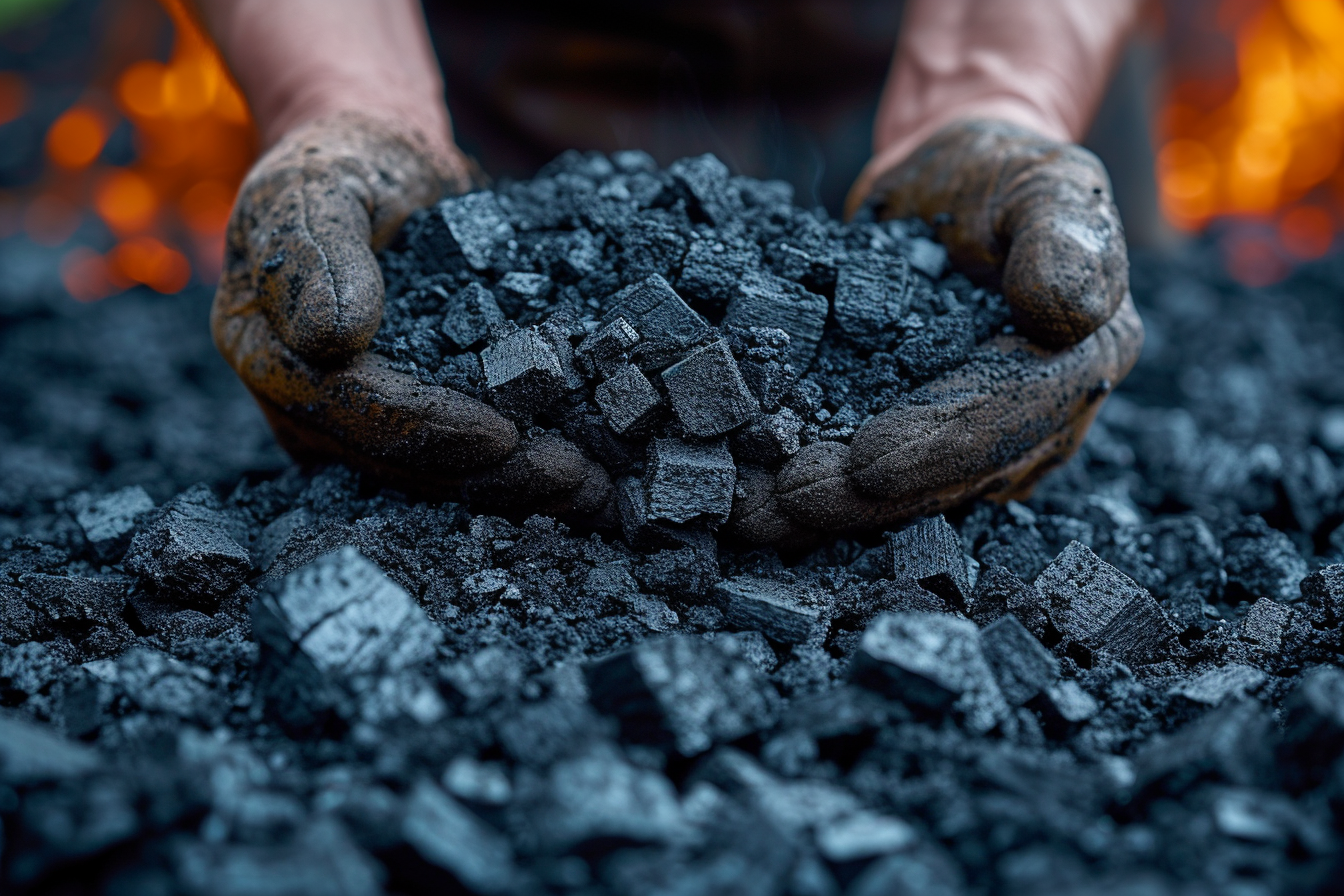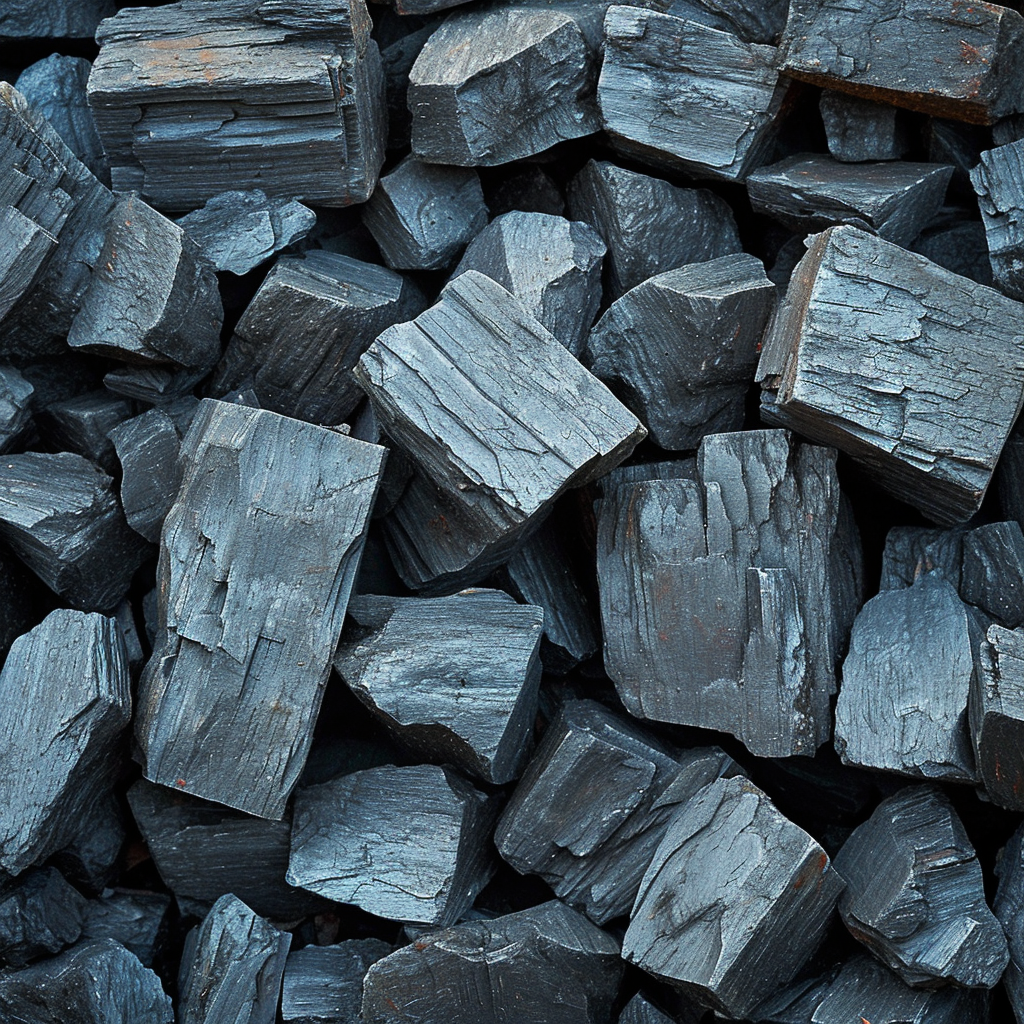Harnessing the Power of Biochar: A Sustainable Revolution in Agriculture
Biochar is a carbon-rich material that is produced through the process of pyrolysis. Pyrolysis involves heating organic materials, such as wood, agricultural residues, or organic waste, in a low-oxygen environment. This prevents the material from undergoing complete combustion, resulting in the creation of a stable and carbon-enriched product known as biochar.

What is Biochar?
Biochar is a carbon-rich material produced through the process of pyrolysis – the thermal decomposition of organic materials in an oxygen-limited environment. Commonly sourced from agricultural residues, wood chips, or organic waste, biochar is renowned for its porous structure and high carbon content.
- The key characteristic of biochar is its porous structure
- Biochar is different from traditional charcoal
- Biochar promotes carbon sequestration

Biochar Fragments

Making Biochar at our Forrest Field Lab
How is Biochar Made?
The production of biochar involves subjecting organic materials to high temperatures in a low-oxygen environment, preventing complete combustion. This process results in a stable and carbon-enriched material that is resistant to decomposition. The remaining biochar can then be integrated into soil to improve its structure and fertility.
- Produced through the process of pyrolysis
- Pyrolysis involves heating organic materials in a low-oxygen environment.
- Organic waste such as feedstock, can be used in biochar production
Uses in Organic Farming:
We have a range of price plans to match your needs, so you can start small and scale up.
Soil Amendment
Biochar serves as an excellent soil amendment, enhancing its structure and water retention capacity. Its porous nature provides a habitat for beneficial microorganisms, promoting a healthier soil ecosystem.
Nutrient Retention
Biochar helps retain essential nutrients in the soil, preventing leaching and ensuring that crops have access to the nutrients they need for optimal growth.
pH Regulation
In addition to improving nutrient availability, biochar can help regulate soil pH, creating an optimal environment for a wide range of crops.
Carbon Sequestration
One of the significant environmental benefits of biochar is its role in carbon sequestration. By stabilizing carbon in a form resistant to decomposition, biochar helps remove carbon dioxide from the atmosphere and stores it in the soil for an extended period.
- The key characteristic of biochar is its porous structure
- Biochar is different from traditional charcoal
- Biochar promotes carbon sequestration

Biochar Carbon Sequestration

Making Biochar at our Forrest Field Lab
Production Benefits
- Waste Utilization
Biochar production often utilizes agricultural residues and organic waste, providing a sustainable solution for managing biomass that might otherwise contribute to environmental issues.
- Energy Generation
The pyrolysis process used to produce biochar can also yield bioenergy in the form of syngas, which can be harnessed for various applications, contributing to the overall sustainability of the production process.
Environmental Benefits:
Reduced Greenhouse Gas Emissions
Biochar application in agriculture helps mitigate greenhouse gas emissions by sequestering carbon in the soil and reducing the need for synthetic fertilizers, which can contribute to nitrous oxide emissions.
Water Conservation
The enhanced water retention capacity of biochar-amended soil reduces the need for irrigation, contributing to water conservation efforts in agriculture.
Learn to make biochar at our Land Lab Workshop
Join us at the Offgrid Green Desert Land Lab for an immersive Biochar Workshop, where we delve into the fascinating world of sustainable agriculture, soil enrichment, and carbon sequestration through the lens of biochar. This hands-on workshop is designed for enthusiasts, farmers, and eco-conscious individuals eager to explore the transformative potential of biochar in arid environments.
